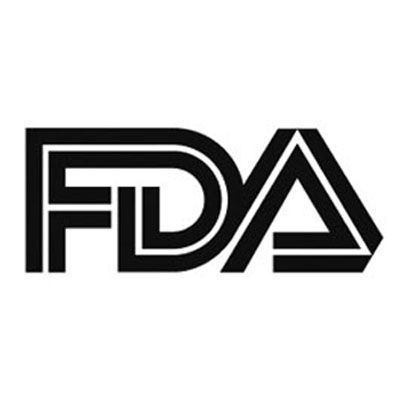FDA Considers Approval of Cosibelimab for Advanced Cutaneous Squamous Cell Carcinoma
The FDA has planned a regular review of the biologic license application for cosibelimab for the treatment for metastatic or locally advanced cutaneous squamous cell carcinoma.

The FDA accepted a biologic license application (BLA) for cosibelimab (CK-301), an anti-PD-L1 antibody and potential treatment option, for patients with metastatic or locally advanced cutaneous squamous cell carcinoma (cSCC) who are not candidates for curative surgery or radiation.1
Findings from Study CK-301-101 (NCT03212404) support the BLA for cosibelimab. The FDA has set a Prescription Drug User Fee Act action date of January 3, 2024. The FDA has not planned an advisory committee meeting for the review of the BLA.
“The filing acceptance of our BLA is a major milestone for Checkpoint and our promising cosibelimab development program,” said James Oliviero, president, and chief executive officer of Checkpoint Therapeutics, in a press release. “We look forward to continuing to work closely with the FDA as we endeavor to bring cosibelimab to patients in need as quickly as possible. I would like to thank the patients and physicians who participated in the cosibelimab clinical studies, as well as our team for their hard work and dedication in achieving this important milestone.”
Study CK-301-101 is a phase 1, open-label, multicenter, dose-escalation study of cosibelimab in patients with advanced cancers. The ongoing study aims to enroll 500 patients across study sites in Australia, France, New Zealand, Poland, Russia, South Africa, Spain, Thailand, and Ukraine.2
Patients in the study will receive intravenous cosibelimab alone for 28-day cycles. The co-primary end points of the study are dose-limiting toxicities, the number of patients who have treatment-emergent adverse events (TEAEs), and the confirmed objective response rate (ORR). The secondary end points being explored in the study are confirmed best ORR, duration of response (DOR), overall survival, pharmacokinetics, and the number of patients with anti-cosibelimab antibodies.
Results from the cSCC cohort were previously presented in a poster at the 2022 American Society of Clinical Oncology (ASCO) Annual Meeting. In this cohort, 78 patients with metastatic cSCC were treated with cosibelimab 80 mg every 2 weeks. These patients made up the intent-to-treat population (ITT). Due to death of 2 patients resulting from COVID-19, the modified ITT population included 76 patients.
The cohort was predominantly male (75.6%), and more were aged ≥65 years (71.8%). In addition, most patients had distant metastatic cSCC (66.7%), and a ECOG performance status of 1 (70.5%). A large percentage of patients were from New Zealand (57.7%), then 24.4% were from Europe, 10.3% from South Africa, and 7.7% from Thailand.
Cosibelimab achieved a confirmed ORR of 48% (95% CI, 37.0%-60.4%). At a median follow-up of 15.2 months (95% CI, 12.0-20.5 months). Responses included complete responses in 7.7% of patients, partial responses in 39.7%, and stable disease in 15.4%. Progressive disease was shown in 26.9% of patients, and response were not evaluable for 10.3%.
The median DOR of cosibelimab was not reached (range, 1.4-31.8). However, the 6-month DOR probability per Kaplan-Meier estimate was 88.1 months (95% CI, 71.3-95.4 months). The 24-month DOR probability was 72.5 months (95% CI, 51.6-85.5 months).
TRAEs occurred in 70.5% of patients in the study. Of those patients, 9.0% experienced a grade 3 TRAEs. No patients had grade 4 or 5 TRAEs. Serious TRAEs occurred in 3.8% of patients. One patient discontinued treatment with cosibelimab as a result of a TRAE. Moreover, 3.8% of patients died because of AEs. The causes of death were COVID-19 for 2 patients, and cardiac arrest for 1.
The most common TRAES observed were fatigue (11.5%), rash (10.3%), and diarrhea and pruritis (6.4% each).
REFERENCES:
1. Checkpoint Therapeutics announces FDA filing acceptance of biologics license application for cosibelimab in metastatic or locally advanced cutaneous squamous cell carcinoma. News release. Checkpoint Therapeutics. March 2, 2023. Accessed March 2, 2023. https://bit.ly/3ZA1sLH
2. Clingan P, Brungs D, Harris L, et al. Efficacy and safety of cosibelimab, an anti–PD-L1 antibody, in patients with metastatic cutaneous squamous cell carcinoma. J Clin Oncol. 2022;40(16): 9537- 9537. doi:10.1200/JCO.2022.40.16_suppl.9537
Atlas Examines Tolerability of Hedgehog Pathway Inhibitors and Transition to IO in mBCC
October 16th 2024During a Case-Based Roundtable® event, Jennifer L. Atlas, MD, discussed treatment for a patient with basal cell carcinoma who reported challenging adverse events with hedgehog pathway inhibitor.
Read More
Tawbi Discusses the Role of Brain Metastases and PD-L1 Status in Melanoma
September 11th 2024During a Case-Based Roundtable® event, Hussein A. Tawbi, MD, PhD, and participants look at benefits of nivolumab combinations for brain metastases and PD-L1 positivity in the metastatic melanoma population in the second article of a 2-part series.
Read More








